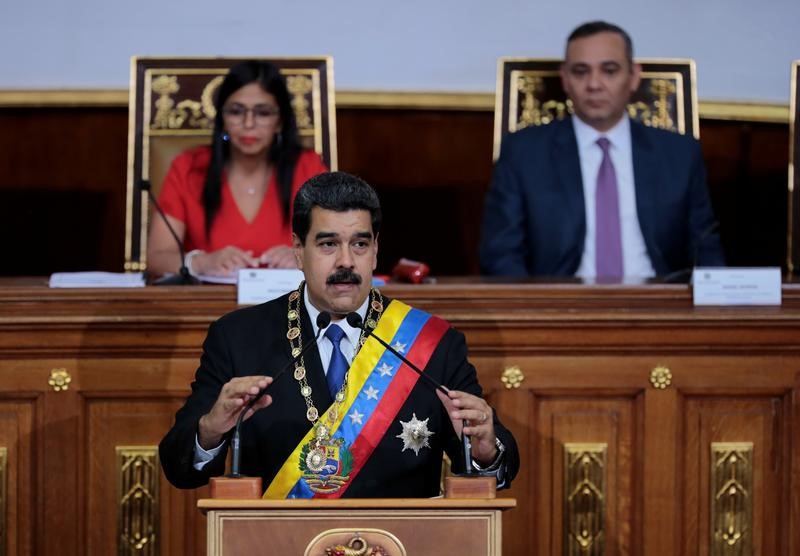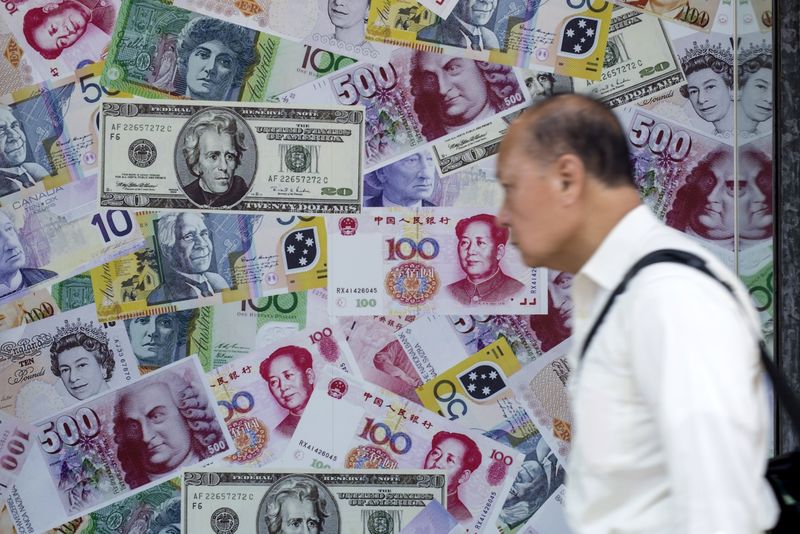CARACAS (Reuters) - Venezuelan President Nicolas Maduro said on Thursday his cash-strapped country would seek to "free" itself from the U.S. dollar next week, using the weakest of two official foreign exchange regimes and a basket of currencies.
Maduro was refering to Venezuela's "DICOM" official exchange rate in which the dollar buys 3,345 bolivars, according to the central bank.
At the strongest official rate, one dollar buys just 10 bolivars, but on the black market the dollar fetches 20,193 bolivars, a spread versus the official rate that economists say has fostered corruption.
A thousand dollars of local currency bought when Maduro came to power in 2013 would now be worth $1.20.
"Venezuela is going to implement a new system of international payments and will create a basket of currencies to free us from the dollar," Maduro said in an hours-long address to a new legislative superbody, without providing details of the new mechanism.
"If they pursue us with the dollar, we'll use the Russian ruble, the yuan, yen, the Indian rupee, the euro," Maduro said.
The oil-rich nation is undergoing a major economic and social crisis, with millions suffering food and medicine shortages and what is believed to be the world's highest inflation.
Monthly inflation quickened to 34 percent, according to the opposition-controlled National Assembly.
Critics say that instead of overhauling Venezuela's failing currency controls or enacting reforms to shake the economy out of a fourth straight year of recession, Maduro has dug in and increased controls.
On Thursday night, he increased the country's minimum wage by 40 percent, taking it to just over $7 per month at the black market exchange rate. He also announced that around 50 "essential" products and services would have their prices frozen at new levels, auguring higher inflation and more shortages.
"Hurricane Maduro. He destroys everything wherever he goes," opposition leader Henrique Capriles said on Twitter.
Maduro's government has been condemned as a dictatorship by a string of regional and European countries, isolating the leftist leader elected four years ago to replace Hugo Chavez.
U.S. President Donald Trump signed an executive order last month that prohibits Americans from dealing in new debt issued by the Venezuelan government or its state oil company in an effort to halt financing.
Maduro says this is part of an "economic war" waged by the opposition and Washington, with the aim of ousting his unpopular government.

"This is the fight against the economic blockade of the imperial sanctions of (U.S. President Donald) Trump," said Maduro.
